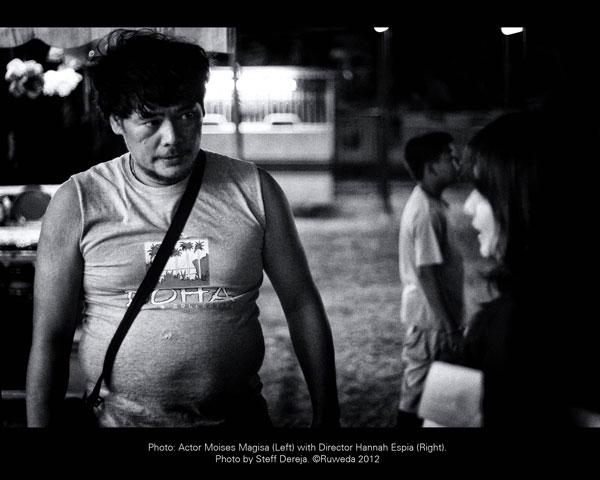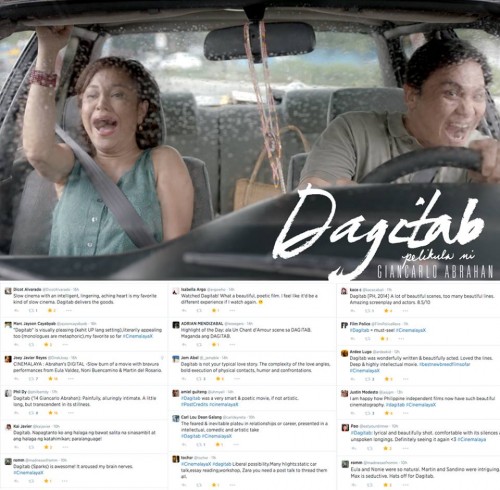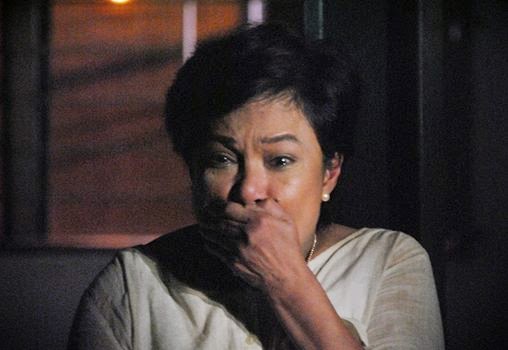THE DIALOGUE: A Journey Into The Film World With Hannah Espia!

Poetic. Stunning. Endearing.
Those are the common adjectives you’ll hear whenever you get across a Hannah Espia work. Truth be told, they are apt, given the immense talent and passion she pours every time she steps into the directorial helm. Born and raised in a family abundant with artistic influence, it would seem that treading the film path is her destiny. One can only think of the possibilities that are laid for a helmer of her caliber.
We sat down with Hannah for a quick chat about her background, her journey, and the future that awaits this industry.
**********
FLIPGEEKS: Let’s start off with a short introduction. Would you mind telling us a few things about yourself? You can include some facts we don’t know.
HANNAH ESPIA: I was named after the Woody Allen film, “Hannah and her Sisters”. Growing up, I was always interested in the arts and it just made sense to me to be working in a field that is arts-related. I chose film because it’s a combination of all forms of art, and it is constantly evolving.
FG: Being a film student, would it suffice to say that your love for movies goes way, way back during your childhood days?
HE: I watched a lot of Japanese anime when I was a kid, so I always thought I would grow up to be a graphic novelist or animator. I guess that’s where my story-telling skill developed. I started loving movies when I was in high school. I made my first short film when I was 15, with a bunch of classmates. We did a teenage horror-slasher film similar to “I Know What You Did Last Summer” with some scenes inspired by “The Ring” trilogy. We had so much fun, and I felt like it was something that I wanted to do for a long time.
FG: When did it dawn to you that you’d like to take the director’s chair one day and helm a film of your own?
HE: When I was 16, I saw the film “All About Lily Chou Chou” by Japanese director Shunji Iwai. From then on, I always thought to myself that I would love to make a film like that. Entering film school, I’ve always wanted to be a cinematographer and/or an editor. I never really saw myself as a director. But I guess it comes with my personality. I’m a bit of a perfectionist, and I like taking control. So I guess it made sense to me to become a director.
FG: You have mentioned during an interview that you stayed at film school for seven years. Why did it take that long?
HE: It took me so long in film school because I came to a point where I wasn’t sure I wanted to make films anymore. I guess for a while, I didn’t see myself making films. I got scared of the competition, and didn’t feel that I had what it takes to make it in the industry. So while trying to finish my degree, I took odd jobs. I worked at a photography studio, an online English school for Koreans, and I worked at our family’s travel agency. Looking back, I’m grateful for those things because it helped me widen my perspective. For example, working at a travel agency led me to the concept of Transit.
FG: What/who are your influences?
HE: My artistic influences include filmmakers such as Shunji Iwai, Akira Kurosawa, and Alejandro Gonzales Innaritu among others. I’m also heavily influenced by my family and my mentors in the film industry.
FG: Now, how would your describe your style? Or to be apt, how does a Hannah Espia movie go, and what sets it apart from other works?
HE: I have absolutely no idea what sets my work apart. My body of work is very slim, and I’m still exploring what style works for me, or whether I do have my own style. What stories do I want to tell? These are things that I still need to figure out.
FG: Do these films somehow represent fragments of your personal life?
HE: In a way, yes. Experiences and emotion are something I draw from.
FG: What instance of your life would you consider as a big break for your path as a budding filmmaker?
HE: I guess it started when my thesis film “Ruweda” got into the short film category of Cinemalaya 2012. I’ve always wanted to join Cinemalaya, and so many opportunities came after I did. The biggest break I got was when I met my producer, Paul Soriano, at the Manila Film Financing Forum. After that, things started falling into place.

FG: How do you feel now that you have reached this stature and gained solid footing in this constantly evolving industry?
HE: I can’t really say it’s solid footing. Like you said, the film industry is a constantly evolving landscape. I guess I sort of just go with the flow and take things as they come. I don’t think it’s about stature. It’s about a person’s attitude: how he treats people around him and his willingness to learn and be open to new ideas. It may not seem like much, but I believe that kindness and humility go a long way, especially in an industry that requires a lot of collaboration. I strive to be like that. Nothing is sure in this industry. That’s why I’m always grateful for the opportunities and recognition.
FG: Do you have any mantra of sorts before undertaking work?
HE: Not a mantra, but I always pray before a shoot. Sometimes during and after, too. It helps to be reminded that strength comes from God. If it were just me, I’ll probably fail at everything. But nothing is impossible with God. I draw strength and courage from that fact.
FG: How do you deal with burnouts?
HE: I sleep, or sometimes I stay in bed and watch films or catch up on TV series. It helps me refresh and gives me new ideas.
FG: We noticed that you travel a lot. Should we presume that a chunk of your travels are for the purpose of expanding your filmmaking repertoire?
HE: It’s mostly for networking, but it’s also to gain new experiences and be inspired by different places. The world is so big and it offers so much. I think one of the best investments you can make in your youth is to travel.
FG: Cinemalaya is now at its tenth year. As an alumna of the said annual film fest, how would you describe this event’s current landscape?
HE: Cinemalaya has definitely produced some of the best films and has discovered some of the best talents in our generation. I’m really grateful to Cinemalaya. In the ten years, the festival has certainly evolved in terms of the themes and the style of filmmaking offered by a lot of films. I hope that someday I can contribute to what they are doing and make sure that the festival continues on.
FG: You have stepped off the directorial chair for the time being and served as a producer for the entry Dagitab, or Sparks. What is this movie all about?
HE: Dagitab (The Sparks) is about a couple, who, after almost 25 years of marriage, has lost the “sparks” in their relationship They try to fill the void by exploring outside their relationship – the man, with his research about a deity who appears to him as a ghost of a former lover, and the woman, who finds comfort in a young student. It’s a mature debut film by Giancarlo Abrahan, who was my co-writer in Transit and I am incredibly proud to be a part of this film.

Screencap and Twitter feedbacks for Giancarlo Abrahan and Hannah Espia’s Cinemalaya X entry DAGITAB
FG: What’s next for Hannah Espia?
HE: I’m currently developing the script for my next feature film called “Learning to Build a Fire.” It is a love story based on my experiences on having an interracial relationship. Other than that, I would love to keep producing and editing films.
FG: Any message you’d like to impart to budding filmmakers?
HE: Don’t rush, don’t expect, and don’t be discouraged. Most of all, always be kind and always be grateful.
**********
Catch our coverage of Cinemalaya X this week! Stay tuned!































